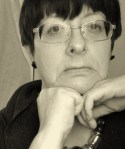Starting on Monday, we're holding a book festival round at
yours...
Well, if you want to, that is.
You don't have to let us through the door - or, rather, through the computer. But if you like books, and e-books especially - if you like writers and writing, it might be worth taking a look.
The Edinburgh eBook Festival 2013 starts on Monday August 12th and run every day for a fortnight. And it's free.
This wonderful idea was writer Cally Phillips', and she has heroically
 |
| Writer Cally Phillips |
The Festival focusses on ebooks and, just as ebooks are sold all over the world in defiance of borders, so the ebook festival can be attended by anyone, from anywhere in the world, so long as they have some kind of device that can connect to the web.
It should really be called The NOT The Edinburgh (eBook) Festival. It's got nothing to do with Edinburgh. It's virtual, it's everywhere - it's in your house and mine, on the train, on the bus, on the ferry and wherever there is wi-fi.
But it's Cally's festival and she can call it what she likes.
You don't have to be able to afford to get to Edinburgh, and then to stay in Edinburgh, or buy tickets. You can attend events in your jim-jams, if you like, while lying on your sofa. You can attend life-writing workshops while sitting in your socks and underpants and drinking beer. If you want. (Though Cally does ask that you don't attempt to join in while driving.)
 |
| Derek: Weather Sheep |
Besides Derek, there will be crime writers, sci-fi writers, horror writers, romance writers and writers who are hard to categorise. There will be workshops, discussions, reviews, ideas, recommends, and FREE ebooks. (And the Festival is free, did I mention?)
There will be music, there will be laughter. The beer, wine and horlicks will flow freely, as will the chocolate (but only if you supply it.)
Each day will start at 10am, with an overview of all the events for that day. You'll be able to lunch with an author throughout the fortnight; and each day will wind up, at 11pm, with reflections
You can follow the Festival on Twitter at @edebookfest
You can find more news on Facebook, here.
And you can find the Festival itself HERE.
Follow the link to find out a lot more about the events on offer, and the writers involved.
I shall be showing up myself on the 17th and 18th, along with my colleague, Alan Hess, and we'll be demonstrating our interactive reading books.
______________________________________________________
Functional Literacy workshop with Sue Price (and Alan Hess)

This is an ‘offsite’ opportunity for you to find out more about ‘functional literacy’ and how ebooks and the online experience can open new doors for readers. Authors Electric founder Sue Price guides you through a DIY workshop experience where you can explore the concept of functional literacy for yourself.
______________________________________________________
I'll be seeing you at the Festival, I hope?




.jpg)
.jpg)
.jpg)














